Throughout the month of February, America celebrates Black History Month. There is much to celebrate for the contributions African Americans have made to our nation. That includes within the firearm industry and as gun owners.
That history, of course, isn’t without controversy. There is still progress to be made. The history of Black Americans and firearm ownership has advanced far beyond what it was at the nation’s founding. That history, however, isn’t meant to be swept under the rug. It is an important lesson that all Americans, from all walks of life, should understand for how it impacts our fundamental freedoms – including Second Amendment rights.
The right to keep and bear arms is increasingly popular in the African American community. That’s an important fact that no one in America should ignore. The Second Amendment isn’t a right for just one segment of America. It’s a right for all – to be exercised whenever any law-abiding citizen so chooses.
NSSF has witnessed and celebrated this growth, especially over recent years as African American gun ownership has skyrocketed. Today’s public and private ranges look like the rest of America, because, let’s be honest, their customers are the rest of America. That includes more African American men and women purchasing firearms, learning how to properly and safely store them when not in use and becoming proficient in marksmanship.
Gun Control History
The history of African Americans and gun ownership in America shows this wasn’t always the case. Our friends at the National African American Gun Association (NAAGA) detailed the complex and discriminatory nature of gun control that was used as a tool to disarm Blacks. Many of today’s gun control laws have their roots in racist Jim Crow laws. Some of them, like North Carolina’s requirement for a sheriff to approve a permit-to-purchase, have been abolished. Yet, some remain and some states even reference these racist laws as reasons to continue to deny Second Amendment rights to all Americans.
NAAGA’s website offers a clear understanding of how Blacks were denied their gun rights. It started with states adopting Black Codes, which were used to deny gun ownership to Blacks. Louisiana colonists established the French Black Code in 1751 that required colonists to stop Blacks if they were seen carrying a firearm and if necessary, beat “any Black carrying any potential weapon, such as a cane.” If a Black person refused to stop, colonists were authorized to “shoot to kill.”
There were even inclusions to the law to disarm free Blacks and disarm Black militias. That didn’t stop African Americans from taking up arms to protect themselves, even at risk to their own lives. Harriet Tubman, the famed abolitionist who ushered slaves to freedom through the Underground Railroad, was known to carry a pistol for her own protection and later a sharpshooter’s rifle during the Civil War.
Black Codes were adopted in many states following the end of the Civil War, requiring licenses for carrying or possessing firearms. That didn’t discourage Frederick Douglass, abolitionist and statesman, from recognizing and advocating for Black Americans, including gun ownership. He wrote in 1867, “a man’s rights rest in three boxes: the ballot box, the jury box and the cartridge box.”
Ida B. Wells-Barnett, an anti-lynching crusader, wrote in 1892 of the importance of Black Americans to be armed at a time when lynchings took the lives of one Black person every three days. “A Winchester rifle should have a place of honor in every Black home, and it should be used for that protection which the law refuses to give.”
More than 100 years after slavery was abolished, African American rights were dismal. Dr. Martin Luther King Jr. applied for a concealed carry permit after his Alabama home was firebombed in 1956. The local sheriff denied the permit, deeming him “unsuitable.” One account noted that Dr. King possessed an “arsenal” before he embraced non-violence to protest racism in America.
In 1964, the Deacons for Defense was formed to protect members of the Congress of Racial Equality (CORE). It was comprised mostly of WWII and Korean War veterans and provided protection for African Americans registering to vote and civil rights workers. Deacons for Defense provided security for the 1966 March Against Fear from Memphis to Jackson, Mississippi. In 1966, the Black Panther Party was formed in Oakland, California, and advocated for self-defense through the use of firearms and exercising Second Amendment rights.
Lawful and responsible gun ownership in the African American community continues today. Many choose to own a firearm for self-defense. Others are finding community in recreational target shooting. In 2020, the same year the COVID-19 pandemic shutdown orders came and crime was spiking, African Americans were purchasing firearms at a rate of 58 percent higher than the year before. Today, African American women are the fastest growing segment of gun owners, with an 87 percent growth rate.
Here are a few examples of outstanding advocates for the right to keep and bear arms:
Philip Smith – NAAGA
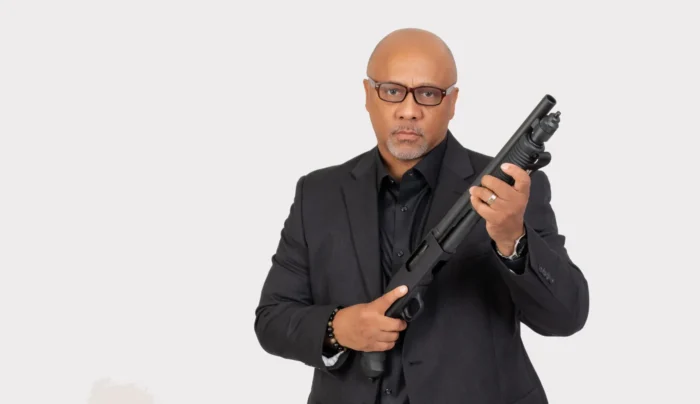
African American gun ownership also saw a rapid increase in membership with NAAGA. Founded by Philip Smith, NAAGA’s goal is to expose, educate and motivate as many African American men and women to go out and purchase a firearm for self-defense and to take training on proper gun use. NAAGA will celebrate eight years of their founding on Feb. 28, 2015, in honor of Black History Month. NAAGA actively advocates for Second Amendment rights of all Americans, especially African Americans. Smith has testified before Congress and NAAGA has submitted amicus briefs for several court challenges that seem to be destined for the U.S. Supreme Court.
Smith added his voice to NSSF’s Real Solutions. Safer Communities® campaign, which promotes firearm industry-led efforts for safe and responsible gun ownership.
Michael Cargill – Challenging ATF
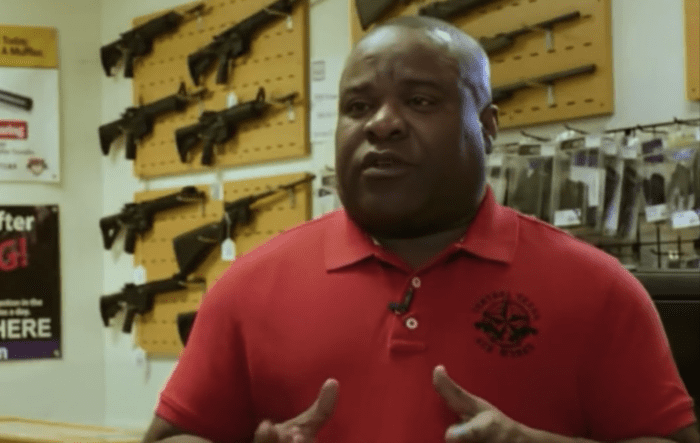
NAAGA has good company when it comes to adding an African American voice in the courts for Second Amendment rights. Michael Cargill is the owner of Central Texas Gun Works and challenged the Bureau of Alcohol, Tobacco, Firearms and Explosives (ATF) Final Rule banning bump stocks. The case, Garland v. Cargill, is being petitioned to the U.S. Supreme Court after the U.S. Court of Appeals for the Fifth Circuit ruled the ATF overstepped their regulatory authority. NSSF filed an amicus brief supporting Cargill’s challenge.
Geneva Solomon – Advocate
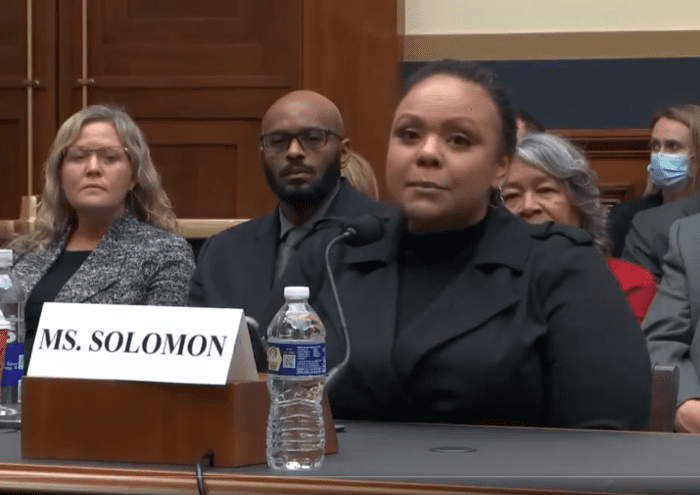
Geneva Solomon is the co-owner of Redstone Firearms in Burbank, Calif., which she operates with her husband, Jonathan. She’s a domestic abuse survivor, business owner, firearm ownership advocate and NAAGA executive board member. She’s spoken in the media and testified before the U.S. Senate and U.S. House of Representatives on the importance of Second Amendment rights, particularly when it applies to African Americans.
“My journey from victim to survivor to advocate has led me to this moment today,” Solomon explained to Congress. “As a Black woman, this is not a matter of imagination. It was my lived experience.”
Solomon said her path to healing and protecting herself and her family made her realize, “I had to become my own first responder.”
Solomon has also advocated for NSSF’s Real Solutions. Safer Communities® campaign for firearm-industry driven safety programs.
Maj Toure – Black Guns Matter
Maj Toure is the founder of Black Guns Matter and a staunch advocate and leading voice for African American gun ownership. Black Guns Matter is focused on educating people of all races, especially Black Americans, on safe, legal and responsible gun ownership. Toure has also testified before Congress and has been featured in media speaking out for Second Amendment rights, especially those of African Americans. He’s unafraid to condemn gun control laws and noted for saying “All gun control is racist.”
Shermichael Singleton – Political Commentator
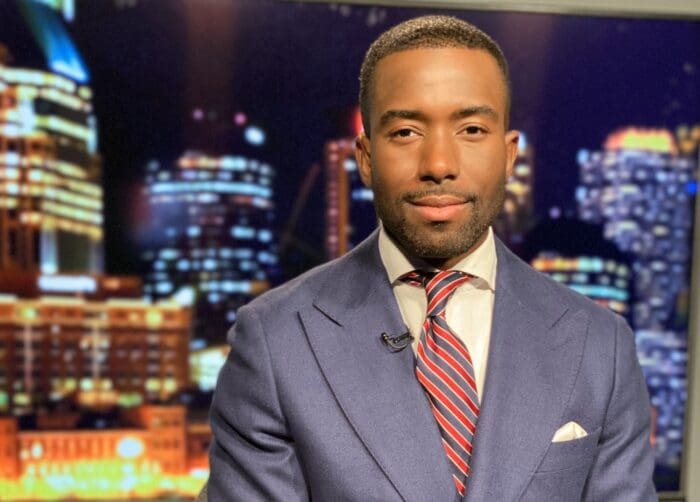
Shermichael Singleton, together with John Keys, created Guns Out TV, a gun culture lifestyle brand and media company that aims to create educational, entertaining and compelling content pertaining to firearms operation and ownership. Singleton is also a noted political commentator, appearing on MSNBC, Fox News and CNN, to speak about the latest on politics. He’s also a fierce advocate for lawful and responsible gun ownership, especially in the African American community.
He authored a column in The Hill in 2021, noting the growth of African American gun owners and cautioning politicians against abandoning voters in favor of special-interest gun control groups that would rob African Americans of their Second Amendment rights.
“That is why efforts by Democrats to legislate the Second Amendment out of existence may land on deaf ears among African Americans who usually support a gun control agenda,” Singleton wrote. “African Americans are now becoming more receptive to the idea of responsible and legal gun ownership as a realistic defense against rising crime and violence from the far right.”
Singleton has been instrumental in advancing NSSF’s Real Solution. Safer Communities® campaign by adding his voice to the importance of firearm industry safety efforts.
Colion Noir – Activist and Lawyer
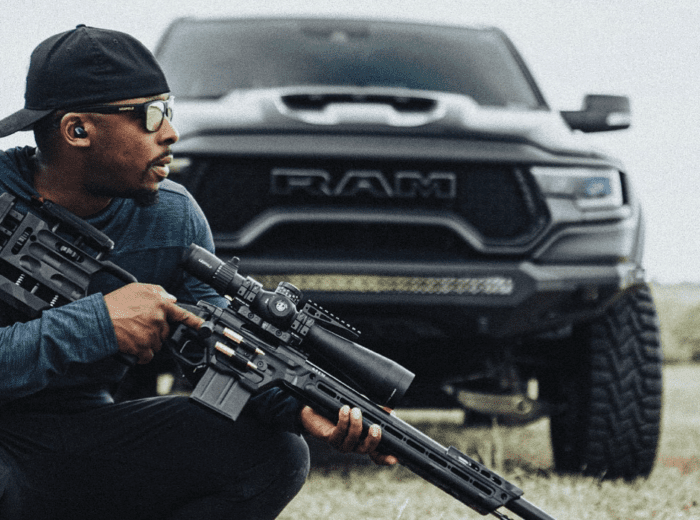
Colion Noir has long been a staple of gun ownership advocacy. He combined his background as a lawyer and passion for firearm ownership to examine the Second Amendment and the attacks on gun rights.
“To me, a gun in the hands of a responsible law-abiding citizen is the ultimate symbol of freedom,” Noir writes on his website, adding, “Over time, I grew tired of hiding and feeling guilty for the sins of other people who used guns irresponsibly. I wasn’t a drug dealer, I didn’t gang bang and I didn’t want to kill anyone. I was a college kid who developed a healthy passion for guns with a desire to protect myself. When I finally came out of the gun closet, I came out talking.”
Today, Noir is one of the most recognizable faces of gun ownership.
Black History Month wouldn’t be complete without talking about – and celebrating – the victories for African Americans claiming their Second Amendment rights. Those rights belong to every American, regardless of race. Those fighting for these rights deserve the recognition they are making for all Americans.
—Joe Bartozzi for the NSSF





Glad to have you aboard. If you’re still voting dem wake the fuck up.
My gorgeous black wife carries a gat because of me. And shes a registered republican🙄.
Perhaps one day woke will be better used to describe Black Americans who woke up and realized a Black American belonging to the democRat Party makes as much sense as a Jew belonging to the nazi party.
Gun Control should stir people the same way the sight of a noose stirs people. After all History Confirms the two are from the same cut of cloth.
Does that include gun ownership among the four perps — I mean, citizens who exercised their Second Amendment rights during the KC Chiefs victory celebration two weeks ago? Asking for a friend.
what a stupid question, demonstrates ignorance of the subject matter.
“Does that include gun ownership among the four perps — I mean, citizens who exercised their Second Amendment rights during the KC Chiefs victory celebration two weeks ago?”
Civil rights and *behavior* are two separate things, a-hole.
I’d suggest that you learn the difference, but I doubt an insufferable ass like yourself is capable… 🙂
Let’s honor 13 does 50 for black history month.
Douglas may have repeated “a man’s rights rest in three boxes: the ballot box, the jury box and the cartridge box.” , Was a thing at the time of Rev War.
f**k black history month. racist bs.
“government has to rely on ancient laws that were designed for a very different society.”
Yes, a much more civil society in many respects, where marriage was still the norm and fatherless boys and men did not run wild.
I’m no expert, and have a genuine question:
Does the acronym for the National African American Gun Association perhaps warrant a second look?
That acronym looked a little conspicuous next to Phillip Smith’s name above his picture in the article. I’m probably reading too much into it.
Love to all,
anti-fancy
Where’s .40 cal to pronounce your question as “stupid?”
I don’t claim to be smart. I’m under the impression that asking questions is how we get smarter and do better.
Members habitually calling things “stupid” doesn’t speak well of TTAG’s armed intelligensia or encourage informed dialogue.
Let’s Make TTAG’s comment section great again! Too soon? 🙂
Too soon.
I think hes right. Say it fast. See?
NAAGA, please!
Virtue signalling nonsense, pretending not to be subtle segregation.
For me, I’m happy for any honest citizen to own a gun. Their ethnic makeup is immaterial. Maybe one day people will get that.
Amen
Let’s not forget the Grandfather of California gun control, Ronald Reagan! He signed the Mulford Act in ’67 because the Black Panthers were buying guns!
Comments are closed.